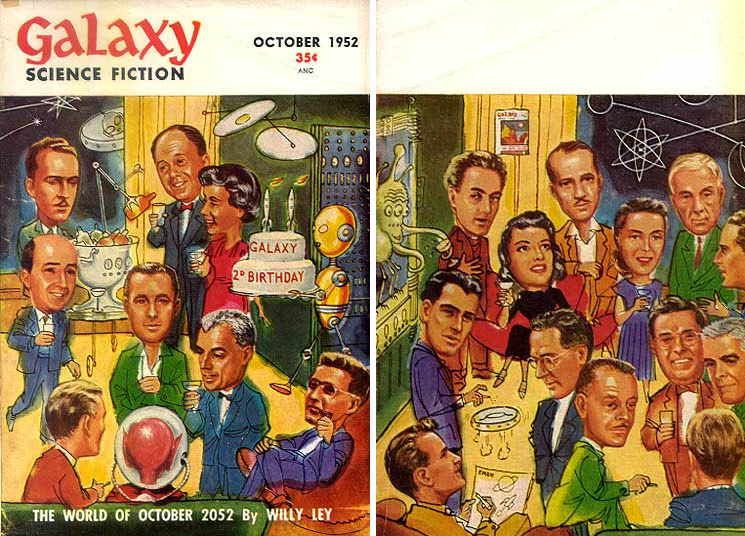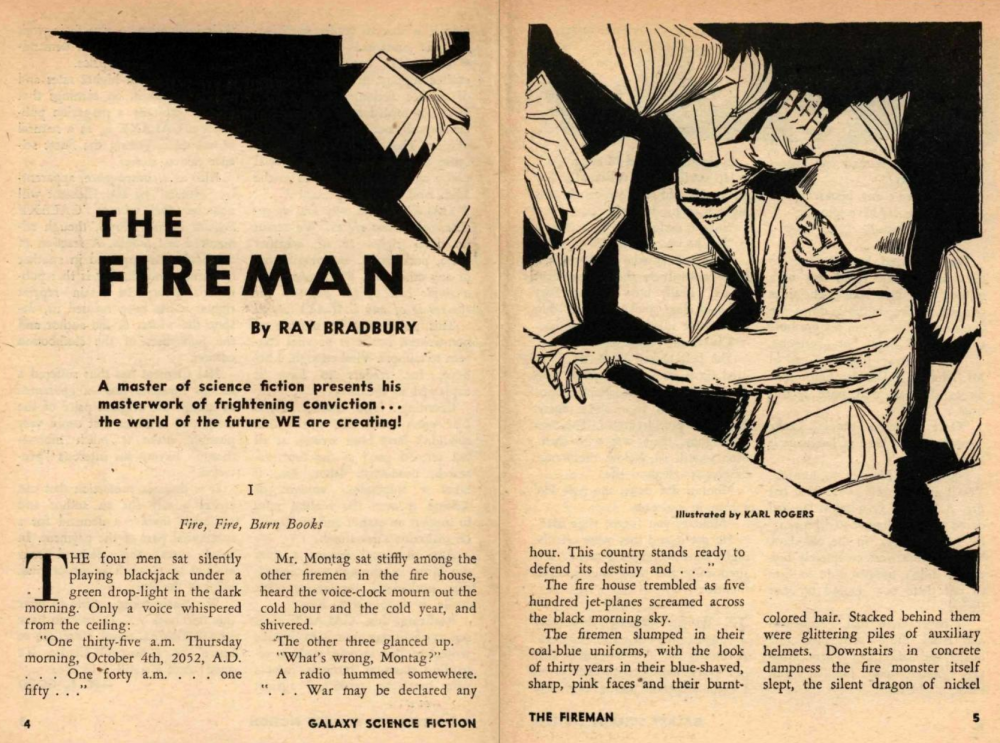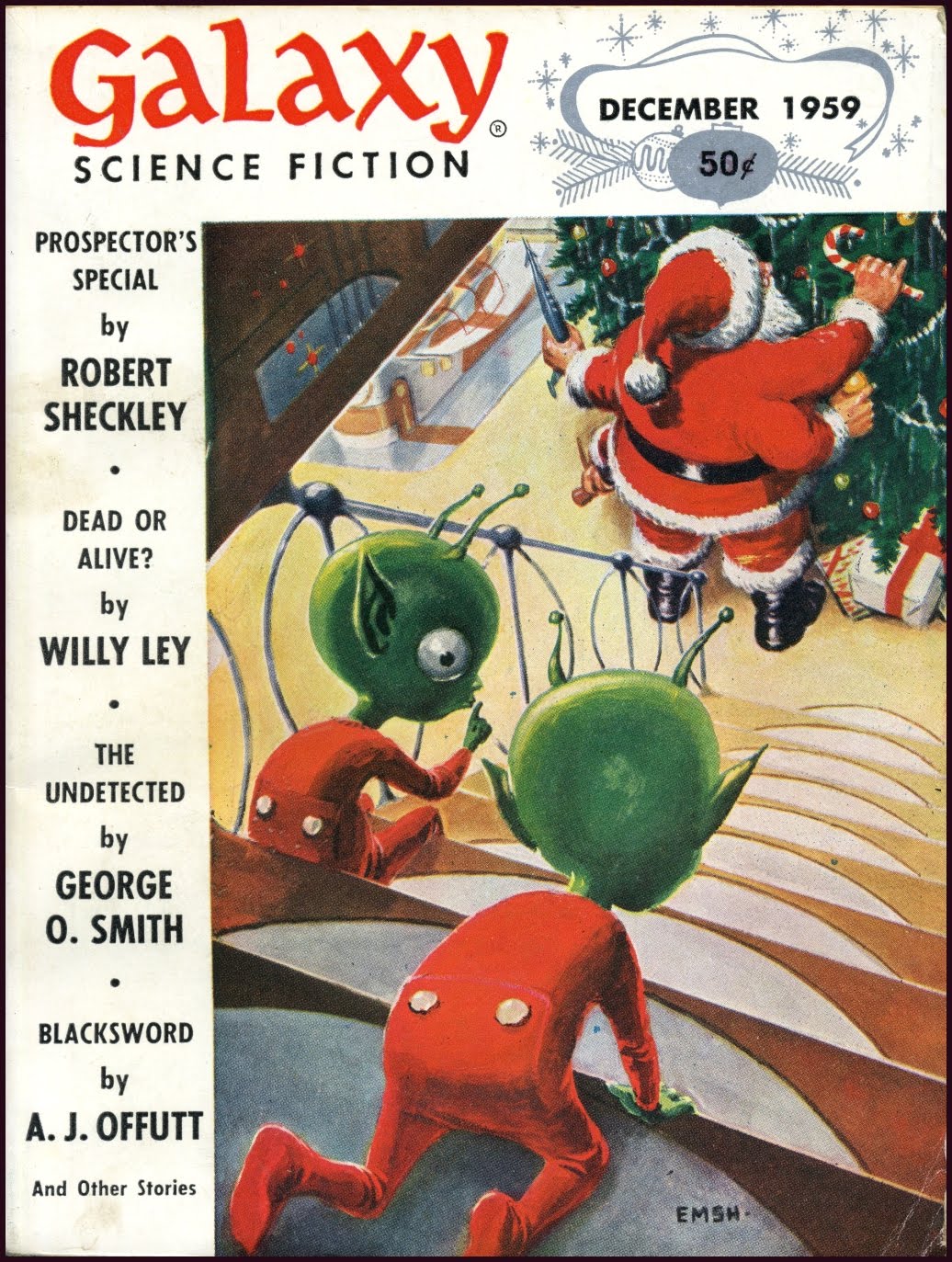Free: 356 Problems with Galaxy, the Groundbreaking Nineteen Fifties Science Fiction Journal


Together with Astounding Science Fiction and The Magazineazine of Fantasy and Science Fiction, Galaxy Magazineazine was one of the important science fiction digests in Nineteen Fifties America. Ray Bradbury wrote for it–together with an early version of his masterpiece Fahrenheit 451–as did Robert A. Heinlein, Isaac Asimov, Frederik Pohl, Theodore Sturgeon, Twinewainer Smith, Jack Vance, and numerous others.
Now a goodly first rate collection of points (356 in whole) is availin a position to your perusal at archive.org for absolutely free. It’s not complete but, nevertheless it’s shut.
When Galaxy appeared in October 1950, it promised a type of science fiction different from the area operas of previous a long time. As an “annual report” written by publisher H.L. Gold professionalclaimed,
…other publishers thought the thought of provideing mature science fiction in an attractive, grownup format was downproper enjoyableny. They knew what offered–shapely feminine endomorphs with bronze bras, embattled male mesomorphs clad in muscle, and frightful alien monsters looking for a human soul.
And whereas Astounding Science Fiction was targeted on know-how–fitted to an America that had enjoyabledamalestally modified since WWII–H.L. Gold’s Galaxy targeted on concepts, humor, satire, psychology and sociology. It additionally had among the best pay charges within the indusstrive, and provided a few of its writers exclusive contracts. And the writers replyed in sort and followed their very own obsessions–though Gold usually pitched concepts.
(Ironically, although immersed in stories of inside and outer area, Gold was an acute in the pastraphobe, and stayed in his asidement, communicating by telephone.)


After a wobbly begin graphics-wise, Gold employed Ed Emshwiller in 1951 to color covers, whose usually humorous type (e.g. this Christmas concern under) swimsuited the humor inside the difficulty.
Confident of their stable of writers, Galaxy professionalduced the receivedderful startday cover on the high, featuring automotiveicatures of eachphysique from Bradbury to Asimov. There’s additionally a information to see who’s who.


A collection of editors–together with Frederik Pohl–took over from Gold after a automotive accident in 1961, and by 1977–eight years after Pohl’s departure–the magazineazine was on its decline. There have been extra iterations, reprints, anthologies, and on-line versions, however the essential run is right here. And people first ten years modified American science fiction forever, paving the way in which for experimalestal writers like Philip Okay. Dick and William Gibson.
You might begin with the Ray Bradbury story (“The Hearthman”) we instructed you about, or Robert A. Heinlein’s “The Puppet.”
Related Content:
The Encyclopedia of Science Fiction: 17,500 Entries on All Issues Sci-Fi Are Now Free On-line
Isaac Asimov’s Foundation Trilogy: Hear the 1973 Radio Dramatization
X Minus One: Hear Classic Sci-Fi Radio Stories from Asimov, Heinlein, Bradbury & Dick
Ted Mills is a freelance author on the humanities who curhirely hosts the artist interview-based FunkZone Podsolid and is the professionalducer of KCRW’s Curious Coast. You may also follow him on Twitter at @tedmills, learn his other arts writing at tedmills.com and/or watch his movies right here.

